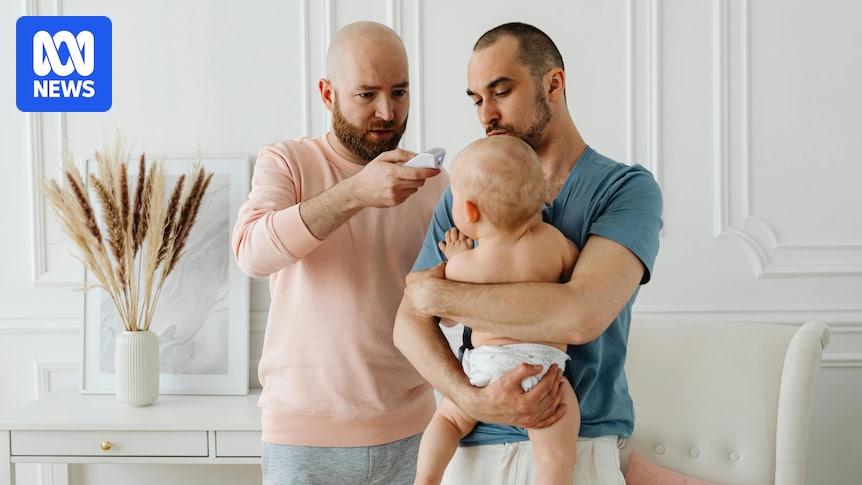
In the hustle and bustle of modern life, parents often face the challenging decision of whether to send their child to daycare when they show signs of illness. With work commitments and limited support networks, the dilemma is a common one, especially given how easily illnesses can spread in childcare environments.
According to Cathryn Hester, Queensland chair at the Royal Australian College of General Practitioners, “Parents have my sympathy on that, there are a lot of demands on time and it can be really hard to judge what is best to do, both for the child in the context of all the other dynamics, and commitments a family has.” She notes that children often experience multiple illnesses in quick succession, making the decision even more complex.
Common Illnesses in Childcare Settings
Dr. Hester frequently encounters upper respiratory tract infections, vomiting, and diarrhea in her young patients. “There are just a lot of kids running around, and they don’t have the best hand hygiene or sneeze-covering practices. Also, they have a developing immune system,” she explains.
These common childhood ailments pose a challenge for parents trying to determine if their child is well enough for daycare. So, how can parents make informed decisions?
Guidelines for Exclusion from Child Care
Nesha Hutchinson, vice president at the Australia Childcare Alliance, explains that Australian childcare centers adhere to guidelines from the National Health and Medical Research Council (NHMRC) when determining exclusion periods. “In most cases, time away from child care will be based on symptoms,” she says.
“Although some infections can be spread before the person becomes sick, people are usually most infectious when they have symptoms,” a NHMRC spokesperson states.
For instance, children with diarrhea or vomiting should be excluded from care until they have been symptom-free for at least 24 hours. If norovirus is confirmed, the exclusion period extends to 48 hours. Respiratory symptoms are assessed based on severity and accompanying symptoms.
The NHMRC advises parents to consult their relevant state or territory health authority, as exclusion requirements may vary. Additionally, childcare centers may apply director discretion, especially in cases involving immunocompromised children.
Assessing Your Child’s Health
Parents should check their childcare service’s policy for exclusion periods related to their child’s symptoms or diagnosed illness. “Parents should also inform the service of their child’s symptoms when reporting their absence,” the NHMRC spokesperson advises.
Dr. Hester emphasizes that children with fevers, rashes, vomiting, diarrhea, weakness, or reduced appetite should “never be sent to daycare.” While children often recover quickly from viral infections, they can also become severely ill in a short period and are best cared for at home.
If in doubt, parents are encouraged to consult their family GP, who can provide advice based on the family’s medical history and current community health trends. TeleHealth consultations offer a convenient option for parents unable to visit a clinic in person.
The Impact of Sending a Sick Child to Daycare
Ms. Hutchinson acknowledges the temptation for parents to send their child to daycare and “see how they go,” but warns of the broader implications. “Dosing them up [with pain relief] just masks the symptoms, and they’ve just infected however many other children and therefore other families will struggle too,” she explains.
Moreover, a sick child is often miserable and would benefit more from being at home with a primary carer, receiving rest and one-on-one attention that is not feasible in a childcare setting.
Dispelling Myths About Illness and Child Care
Parents often receive anecdotal advice regarding their child’s illness, some of which can be misleading. Dr. Hester points out the misconception that clear nasal mucus indicates a child is well enough for childcare, whereas green or yellow mucus suggests otherwise. “Some kids can have perfectly clear snot and be very unwell, or even starting to develop serious conditions like whooping cough,” she warns.
Ms. Hutchinson also addresses the myth that cold air causes illness, stressing that childhood educators are not medical professionals. “They do not have the ability to determine if your child is sick or not, all they can do is respond to the symptoms in front of them and respond according to the guidelines,” she says.
Dr. Hester advises parents to focus on prevention by ensuring their children are up to date with vaccinations. “With flu especially — I am seeing so many little kids with Influenza A at the moment, which can be largely prevented with vaccinations,” she notes.
Ultimately, making informed decisions about a child’s attendance in childcare during illness requires careful consideration of symptoms, guidelines, and expert advice. By prioritizing health and communication, parents can navigate this common parenting challenge more effectively.




